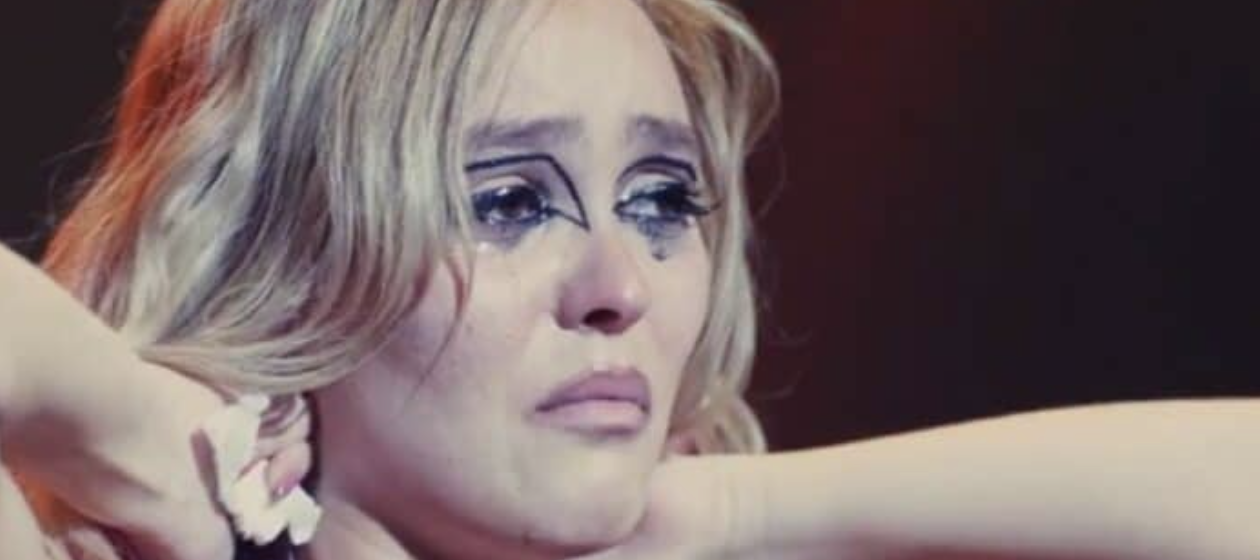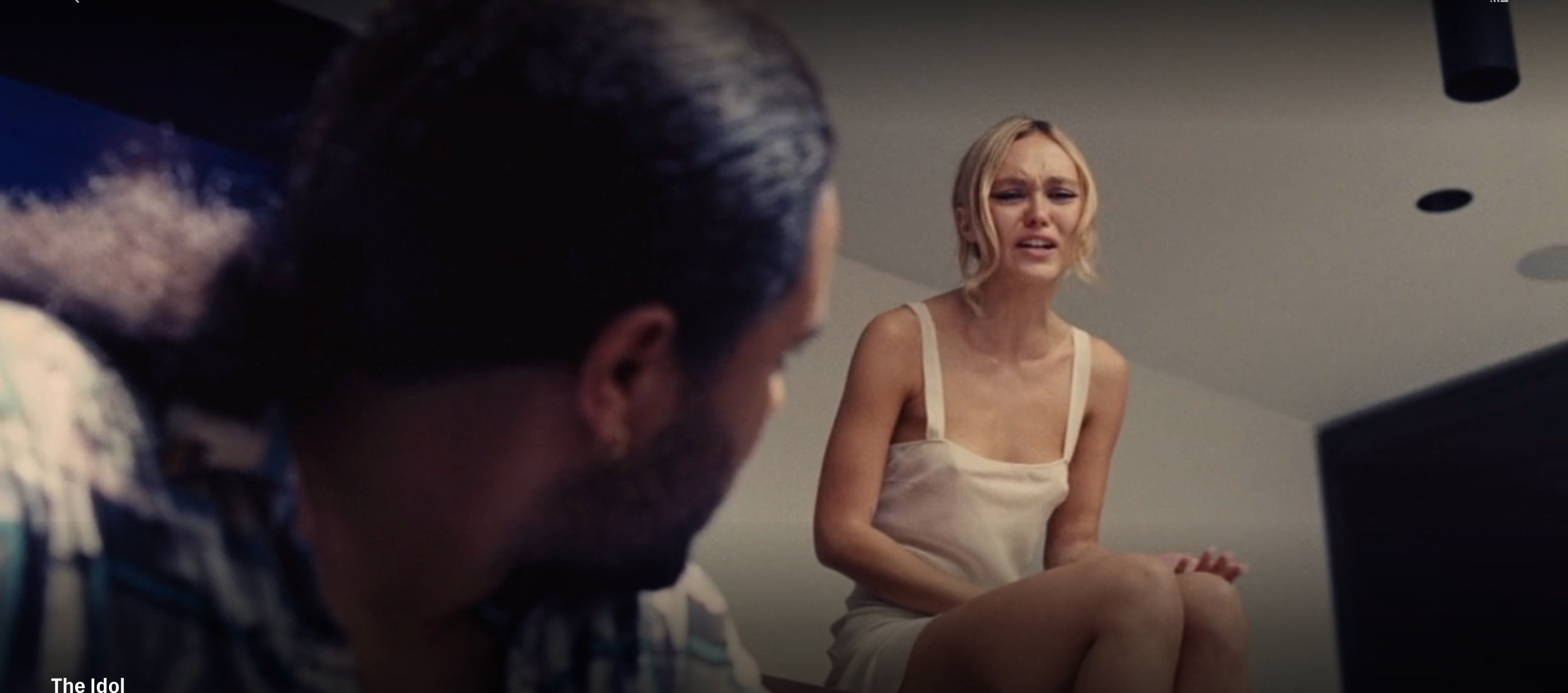HBO's The Idol: A Horrific Depiction of Mental Health Issues

(cw: abuse, sexual violence, trauma, drug use)
SPOILERS AHEAD
HBO's The Idol was meant to be "a dark, twisted fairy tale about the music industry”, according to Abel Tesfaye, a musician known as The Weeknd and a co-creator and co-star of the show. However, the show has been criticized for its tone-deaf messaging about mental health that camouflages itself as a satire of the dark world of the music and entertainment industry.
To balance the playing field, no one said The Idol was going to be a portrayal of an ideal world but when we talk about mental health and mental illness, we should do so in a way that encourages a true understanding of how it works and/or a compassionate view of the hardships and difficult realities people with mental health issues experience.
Dr. Courtney Tracy, aka The Truth Doctor, a renowned psychotherapist who watched and reacted to every episode of The Idol summarizes five scenes from the show's five episodes that stigmatized mental health and mental illness and may have pushed us back further as a society when it comes to understanding how and why people function the way they do.
Five Scenes Where HBO's The Idol Horribly Depicted Mental Illness 😭👀
Episode 1: Pop Tarts & Rat Tales

In the first episode of The Idol, we are introduced to Jocelyn, the main character, who immediately shows the audience her ability to showcase a range of emotions simply upon being asked to do so (and, in later episodes, implying how good she is at using her emotions to manipulate others). She's someone who enjoys being choked while engaging in sexual acts and tells her best friend and assistant that she likes a new man she met, Tedros (played by The Weeknd) because he gives off "rape-y" vibes... The first episode ends with Jocelyn getting almost suffocated by Tedros with a red robe as Tedros tries to help Jocelyn find her voice again.
The problem? This episode also taught us that Jocelyn's mother recently died of cancer. Jocelyn took care of her and held her hand as she died. She canceled her tour, had a psychotic break, and was really struggling. This episode left us confused about her true mental state and made us unsure if we should feel bad for her or not... WE SHOULD. It's a horrible thing to lose a parent, especially under those circumstances.
Watch my reaction to Episode 1 here: https://www.youtube.com/watch?v=0X2gfjBVtSk
Episode 2: Double Fantasy

In the second episode of The Idol, Jocelyn shows her management team her new single developed with Tedros. It's extremely sexual (like, just literal moaning). Jocelyn loves it, her record exec Nikki doesn't, and starts screaming at her for trying to change things after already canceling her last tour due to Jocelyn's mother's death. Jocelyn then chokes herself, again, while engaging in more sexual acts... The episode implies Jocelyn engages in self-harm, but no one confronts her about it, she has a complete breakdown on stage while filming a music video, calls out for her late mother, and loses the song altogether. The episode ends with Tedros coming over to her house (after he's done shocking his cult followers with literal shock collars) and them having a far-too-long sexual experience that does nothing but continue to show how Jocelyn likes to be controlled and harmed for pleasure.
The problem? This episode was a great depiction of grief and how it can show up due to and alongside distress. Significant distress. However, it also failed to connect the relationship between her grief and why she may have been engaging in these more pain-pleasure experiences with Tedros. It appeared to showcase mental illness is chaotic, unhinged, and the type of vulnerable that any man should want to use to his advantage... YIKES.
Watch my reaction to Episode 2 here: https://www.youtube.com/watch?v=WUpFS3ziZuo
Episode 3: Daybreak

In the third episode of The Idol, the pieces start to come together, but not right away. First, Tedros gives oral to Jocelyn in the backseat of a moving convertible and they go shopping at luxury stores. Then, they hook up in the store but Jocelyn leaves Tedros to finish the deed with himself alone in the dressing room. Later that night, at a dinner party, Jocelyn shares with her new friends that her mother used to beat her with a hairbrush for decades in order to keep her in line and ensure her a successful career. Finally, Tedros uses the hairbrush on Jocelyn in front of everyone in a ritualistic event best described as complete torture porn with Tedros' line emphasizing the point the show is trying to get across: "This is really gonna hurt. But if you push through the pain, it'll be beautiful." I mean, someone help... this is too much with no professional mental health explanation...
The problem? One: This episode showed way too many graphic, traumatic, and deeply hurtful mental health concepts without support for how viewers should process them. Moving straight from someone crying about how their mother physically abused them to them agreeing to be physically abused with the same object in front of others, willingly, for her career just seems wildly unnecessary without including some type of explanation for how or why people find themselves wanting to reenact their trauma. It also may have given some viewers the idea that all people who have been abused could benefit from being abused again. NO, dear god, NO. Two: Just why? WHY?
Watch my reaction to Episode 3 here: https://www.youtube.com/watch?v=Am28VW69sTM&t=8s
Episode 4: Stars Belong To The World

In the fourth episode of The Idol, Tedros wants to showcase Jocelyn's talent to their crew and so he pleasures her in front of everyone and it makes most people uncomfortable (including us, the viewers). Fast forward, Tedros brings his shock collar to Jocelyn's house and Jocelyn insists that Tedros use it on her long-time friend and creative director, Xander, because he's supposedly lying about her and her late mother's behaviors around Jocelyn's success. Jocelyn, in the fourth episode, moves from the victim to the abuser. Next, Tedros tells Jocelyn to use her trauma as a way for fans to buy tickets for her upcoming tour. She does. Lastly, Jocelyn finds out Tedros has been using her and calls her ex-boyfriend over where the dialogue seems to suggest Jocelyn has been manipulating the image of their breakup to everyone to make her look better and more like a "victim"...
The problem? She is a victim. AND she's harmed others. This is a really intense issue that often comes up with people who have been traumatized who then proceed to engage in harmful acts onto others. Yes, of course, the behaviors need to be addressed, and so do the causes of the behaviors. This episode did nothing to help viewers understand the complexity of mental illness, trauma, abuse, and neglect, and how it alters the course of someone's development.
Watch my reaction to Episode 4 here: https://www.youtube.com/watch?v=cX2lI1MncpY&t=2s
Episode 5: Jocelyn Forever

In the fifth episode of The Idol, Jocelyn gets her power back. She kicks Tedros out of her house after finding out that he's been trying to use her for his and his crew's fame all along. Xander implies Jocelyn is responsible for more manipulating situations going on (like her ex being accused of rape). Jocelyn is getting ready for her tour now that her music is up to touring standards again and tickets sold out in three weeks (likely due to her trauma dump onto her fans as a result of Tedros' recommendation). Jocelyn invites Tedros to her tour but only as long as he feels small, inadequate, and under the full control of Jocelyn. Jocelyn replaces the hairbrush given to her by her abusive mother. This scene was taken by most viewers as implying Jocelyn made up the abuse the whole time just to get Tedros to make her music better............ WHAT THE ACTUAL F***...
The problem? You'll have to watch to find out 😉 Watch my reaction to Episode 5 when it airs here: https://www.youtube.com/@the.truth.doctor
Thanks for reading and see you in a couple of weeks! If you haven't checked out this week's other article titled "The Female Experience of Autism Spectrum Disorder (ASD)", read it now to learn more about this important topic!
Thanks for reading and remember: You're a human first, your unconscious is showing, and I'm so glad that you exist.
Written by Dr. Courtney Tracy, LCSW, PsyD


